2020 top communication skills ideas revisited.
By Assertive Way
Key Articles
- Nine Questions To Decide When To Practice Speaking Up (Forbes)
- When You Need To Over-Communicate With Your Boss (Forbes)
- When You Don’t Like Being Nice: Finding An Alternative (Tiny Buddha)
- 5 Easy Ways to Crush Anxiety In Hard Conversations
- Are You Introverted, Shy, Anxious, or Passive? How To Tell
- 5 Easy Ways to Promote Your Work More Organically
- 24 Practical Ways to Create More Joy at Work
- 7 Ways to Be More Resourceful and Boost Resourcefulness
- How To Stop Worrying About What People Think Of You
- 20 Helpful Principles To Boost Your Courage To Speak Up
- 10 Powerful Confidence Lessons from Flamenco Dance
- How to Make Your Boss Appreciate Your Hard Work
- How To Show You Care For Your Team
- How to Overcome Feeling Lost in Your New Job
- 3 Simple Ways to Relieve Your Stress with Assertiveness
Sign up for our Weekly Newsletter “Nice With Limits” for tips and inspiration for confidence at work and to boost your career!
We take your email seriously and will never sell or share it.
Here is the roundup of AssertiveWay.com best 15 articles in 2020 to start the new year feeling empowered.
Nine Questions To Decide When To Practice Speaking Up (Forbes)
To find out if you should practice speaking up before delivering your message, consider your commitment to speaking up, message complexity, opportunity window, importance, anxiety, overthinking tendency, opportunity cost of time, importance of passion and empathy.
When You Need To Over-Communicate With Your Boss (Forbes)
It is crucial to over-communicate when three situations occur: significant changes, significant uncertainty, and significant impact.
When You Don’t Like Being Nice: Finding An Alternative (Tiny Buddha)
If you are tired of others describing you as “nice” then re-define what “nice” means to you by considering role models, alternative words like “respectful”, and distinguishing acting and being nice.
5 Easy Ways to Crush Anxiety In Hard Conversations
Reduce unnecessary anxiety from hard conversations by reducing the pre-anxiety and the post-conversation rumination by focusing on excitement, flexing expectations, mindfulness, acting fast, and reflecting on learnings.
Are You Introverted, Shy, Anxious, or Passive? How To Tell
Introverts get energy from time alone. Shy people feel awkward socially but are still able to have a normal happy life. Social anxiety is an extreme version of shyness causes withdrawal from several situations. Passive is the behavior of not expressing needs, desires, and rights.
5 Easy Ways to Promote Your Work More Organically
If you want to get ahead at work then you need to show your work. Apply 10% of efforts in promotion, update your boss, speak up in meetings, share your achievements enthusiastically, and recognize and appreciate others.
24 Practical Ways to Create More Joy at Work
Get more joy by giving joy more to others, connect more with others, celebrating often, expressing yourself at work, clarifying what matters and being more intentional.
7 Ways to Be More Resourceful and Boost Resourcefulness
Resourceful people create more out of less. Be more resourceful by leveraging opportunities, worrying less about what others think, embracing different experiences, passions, constraints, risks, and having clear principles.
How To Stop Worrying About What People Think Of You
Consider if it will matter in 3 years, causes harm, has meaning, is real; their intentions, knowledge, perspective; if you respect and agree with them; if you want feedback and if someone else can give it to you.
20 Helpful Principles To Boost Your Courage To Speak Up
A credo is a set of principles that reflect founding values and beliefs. Design your own credo to be more courageous, confident, and assertive. Consider including identity, speaking up, ownership, mindset, and action principles.
10 Powerful Confidence Lessons from Flamenco Dance
When you find yourself lacking confidence, remember the passion, expression of emotions and body language, posture, powerful movements, precision, boldness, pride, boundaries, and ole inviting encouragement of flamenco dance.
How to Make Your Boss Appreciate Your Hard Work
Promote your work often, show the attempts, diversify your audience, ask for the right work, appreciate what your boss does for you, and explain how you’d like to be appreciated.
How To Show You Care For Your Team
When you have tough conversations, show you care by giving the benefit of doubt, acknowledging their problems, starting with intention, ending with appreciation, checking in and following up. As a leader, show you care with acknowledgment, empowerment, and by embodying values.
How to Overcome Feeling Lost in Your New Job
Don’t quit! To get through it, enlist the support of someone who can help you. That can even be your boss. That way they’ll know exactly where you are and will be able to help you. Not only that, your boss will see your commitment and growth and will respect that.
3 Simple Ways to Relieve Your Stress with Assertiveness
Create clarity (ask questions; express yourself; address issues before they get big). Stop feeling guilty (you aren’t responsible for their feelings; look for wrong-doing evidence; ask for feedback. Say no (make your default answer “no”; don’t over-justify; be firm).
Go crush 2021!
Scroll all the way down and comment on your top goal this year!
Sign up for our Weekly Newsletter “Nice With Limits” for tips and inspiration for confidence at work and to boost your career!
We take your email seriously and will never sell or share it.
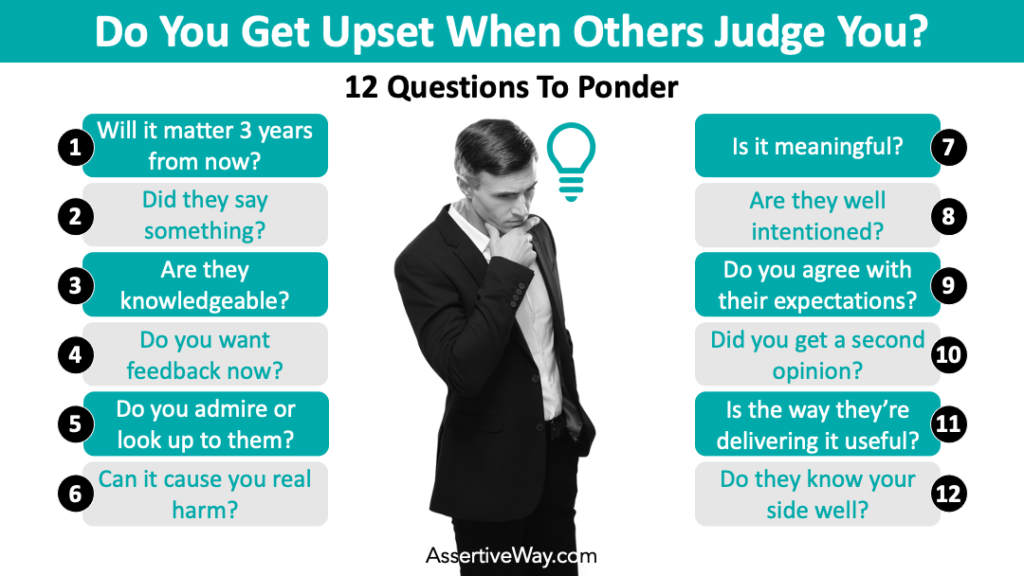
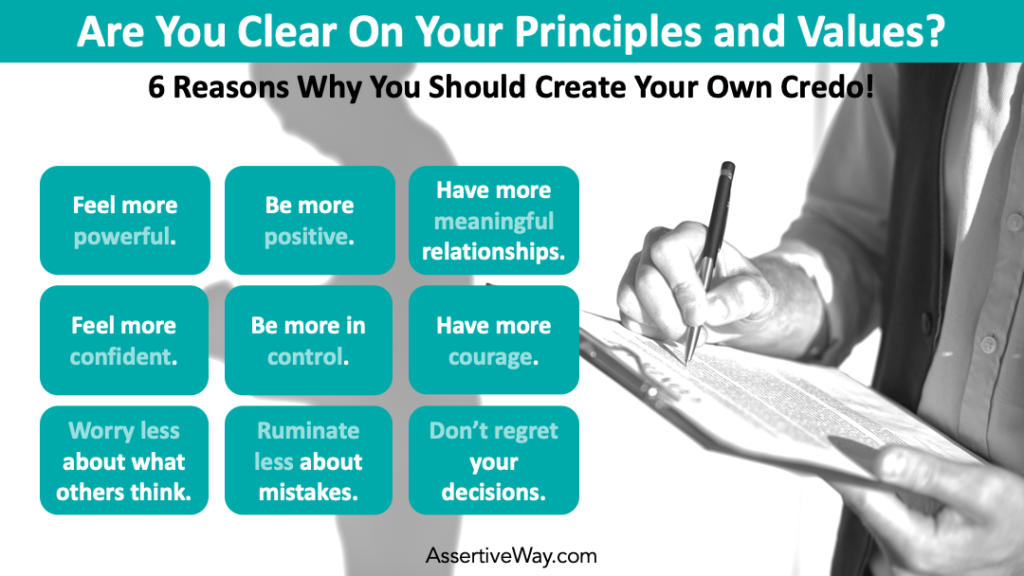

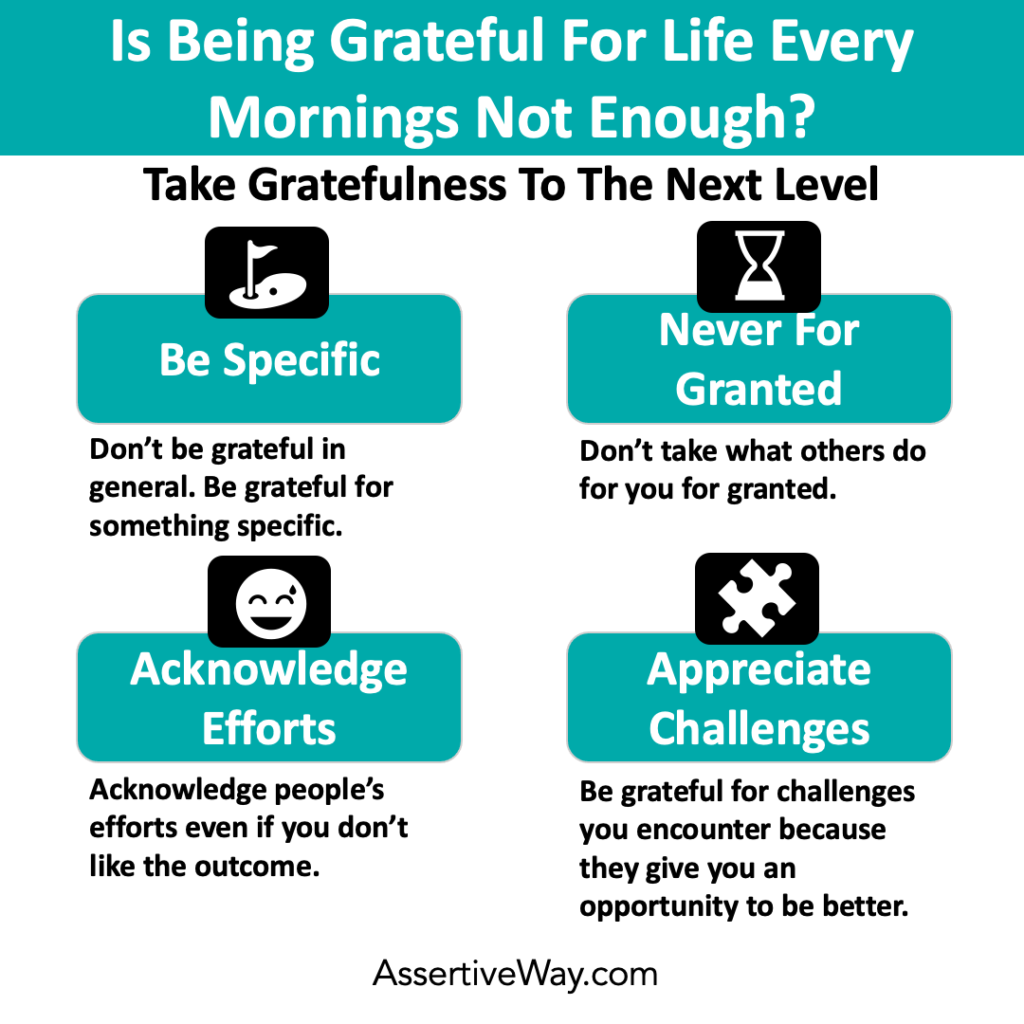
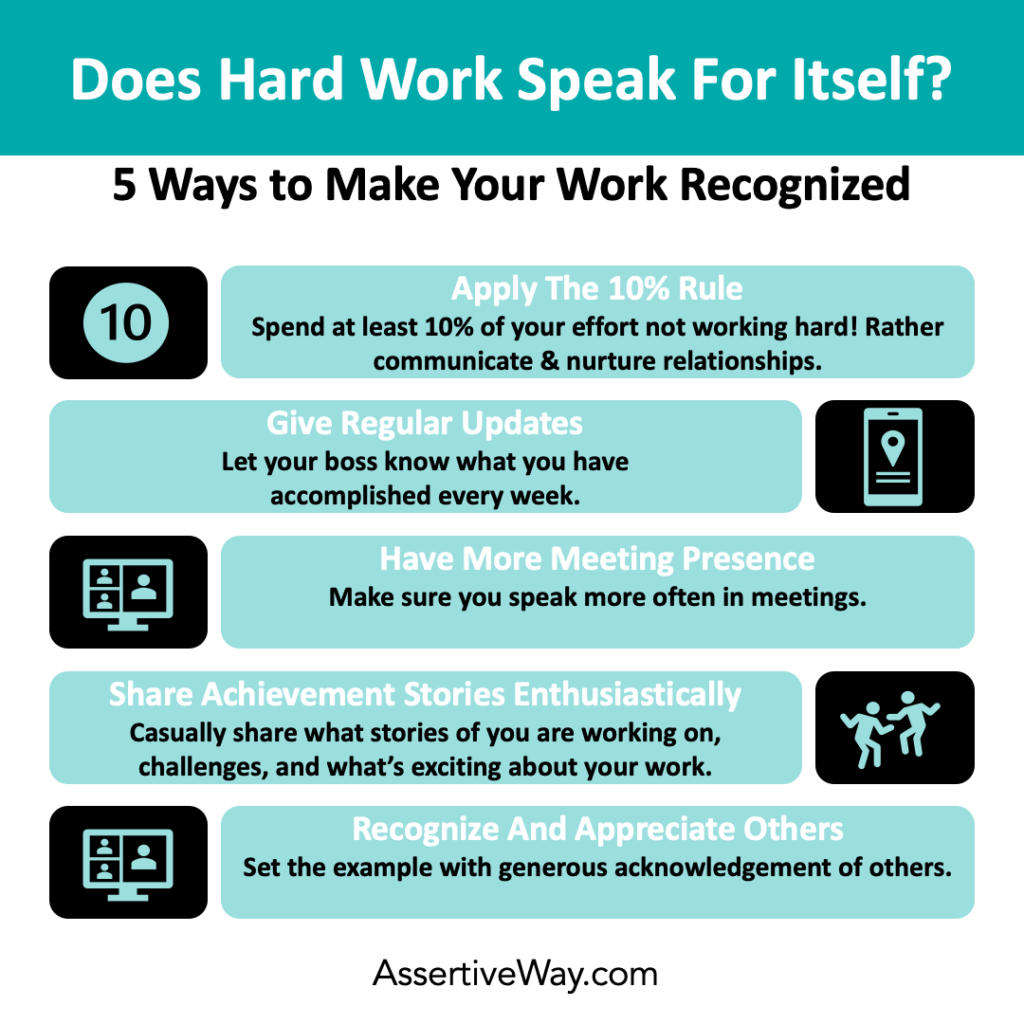
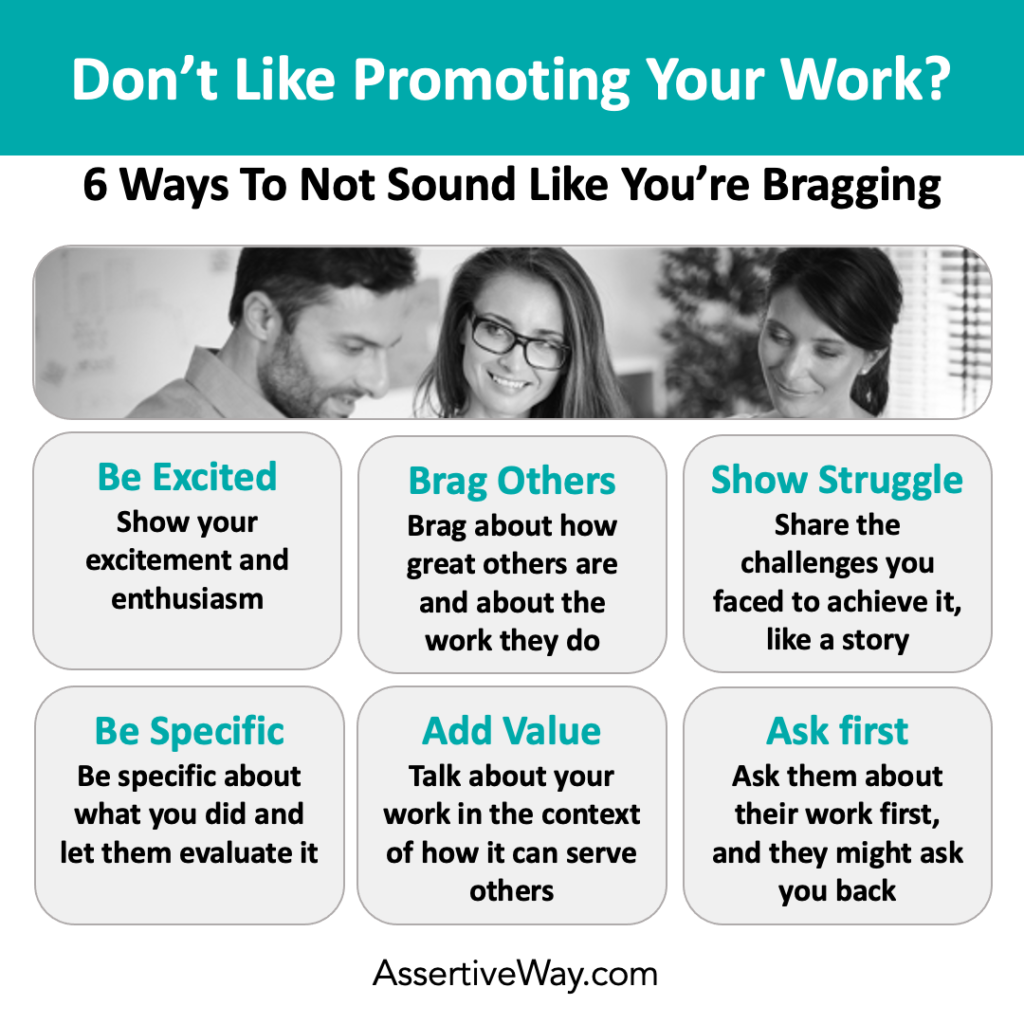
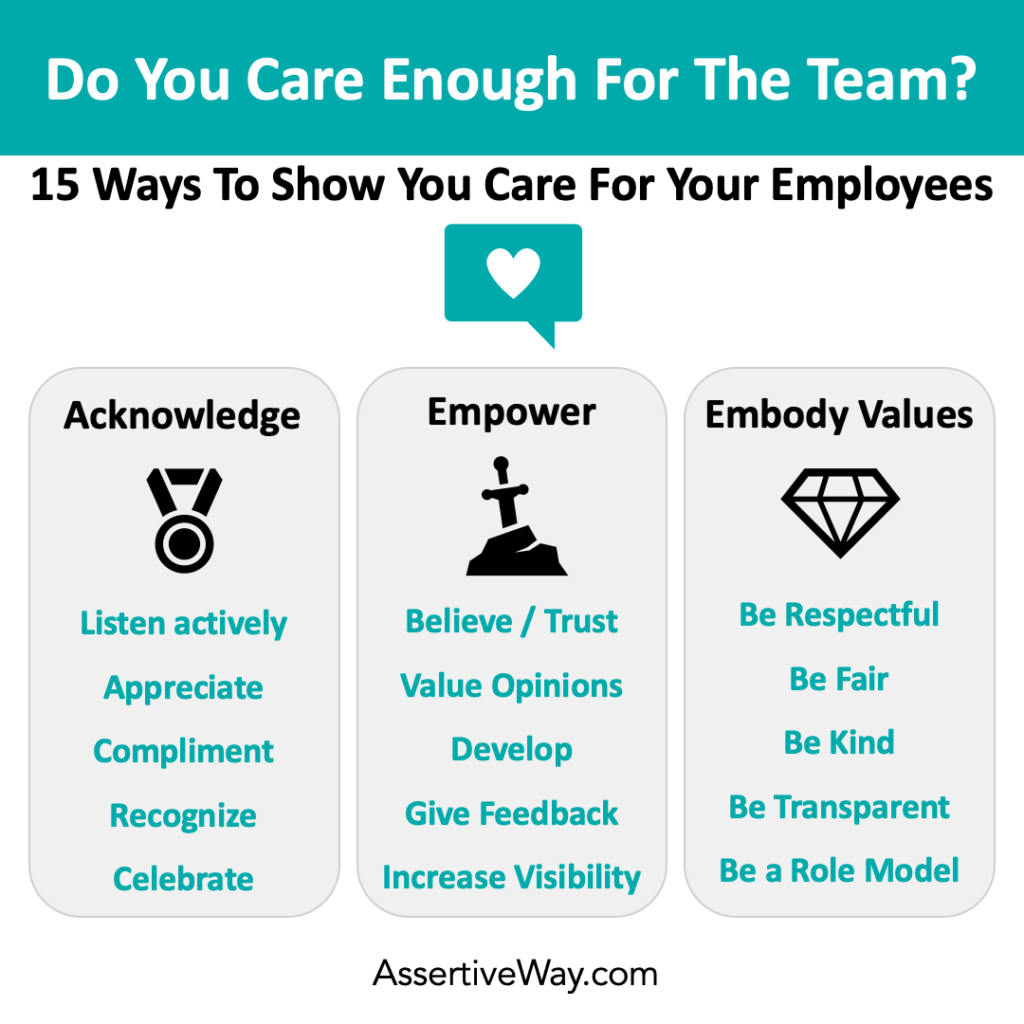
Summary
Here is the roundup of AssertiveWay.com best 15 articles in 2020 so that you start the new year feeling inspired and empowered.
They include topics ranging from speaking up, courage, confidence, joy, leadership, managing up, resourcefulness, anxiety, worry, stress, and more.
- Nine Questions To Decide When To Practice Speaking Up (Forbes)
- When You Need To Over-Communicate With Your Boss (Forbes)
- When You Don’t Like Being Nice: Finding An Alternative (Tiny Buddha)
- 5 Easy Ways to Crush Anxiety In Hard Conversations
- Are You Introverted, Shy, Anxious, or Passive? How To Tell
- 5 Easy Ways to Promote Your Work More Organically
- 24 Practical Ways to Create More Joy at Work
- 7 Ways to Be More Resourceful and Boost Resourcefulness
- How To Stop Worrying About What People Think Of You
- 20 helpful Principles To Boost Your Courage To Speak Up
- 10 Powerful Confidence Lessons from Flamenco Dance
- How to Make Your Boss Appreciate Your Hard Work
- How To Show You Care For Your Team
- How to Overcome Feeling Lost in Your New Job
- 3 Simple Ways to Relieve Your Stress with Assertiveness
“It’s never too late to be what you might have been.” – George Eliot
Spread the assertive confidence!
Video Transcript
Here is the roundup of AssertiveWay.com best 15 articles in 2020 so that you start the new year feeling inspired and empowered.
They include topics ranging from speaking up, courage, confidence, joy, leadership, managing up, resourcefulness, anxiety, worry, and more.
Nine Questions To Decide When To Practice Speaking Up (Forbes)
Answer these nine questions to find out if you should practice speaking up before delivering your message.
- Commitment: How committed are you to speak up?
- Complexity: How complicated is the message?
- Opportunity window: How long will the opportunity to speak up last?
- Importance: How crucial is the situation?
- Anxiety: How anxious do you get practicing and delivering the message?
- Overthinking: Do you overthink speaking up?
- Opportunity cost: What is the opportunity cost of the time spent practicing?
- Passion: Are the words or the emotion conveyed more important?
- Empathy: Are the words or the outcome more important?
When You Need To Over-Communicate With Your Boss (Forbes)
It is crucial to over-communicate when three situations occur: significant changes, significant uncertainty, and significant impact.
When You Don’t Like Being Nice: Finding An Alternative (Tiny Buddha)
If you are tired of others describing you as “nice” then re-define what “nice” means to you by answering these 3 questions:
- Who is your “nice” role model, and do you want to be like them?
- What other words describe being “nice” to you?
- Do you want to act or to be “nice”?
Consider aiming to be respectful and to be respected instead of nice.
Before we continue, I have a favor to ask of you. If you’re enjoying this video so far, please support me by giving it a like, hitting the bell, and making any comment below because it will help the algorithm.
5 Easy Ways to Crush Anxiety In Hard Conversations
Reduce unnecessary anxiety from hard conversations by reducing the anticipated anxiety and the after-conversation rumination with these 5 strategies:
- Interpret anxiety as excitement
- Let go of strict expectations
- Be present in the moment
- Reduce the time between decision and action
- Write down your learning points
Are You Introverted, Shy, Anxious, or Passive? How To Tell
Do you know the difference between introverted, shyness, people pleasing, and social anxiety?
- Introversion – Introverts get energy from time alone while extroverts get energy in social activities. There are many exceptional introverted leaders such as Bill Gates, Elon Musk, and Mark Zucherberg.
- Shyness – Shy people avoid eye contact, feel nervous, and awkward in social events. They magnify their fear of negative judgement from others. They feel anxious and avoid some social situations but are still able to have a functioning and happy life.
- Social Anxiety – People with social anxiety may not take a promotion because they can’t handle the attention in the meetings. Social anxiety is an extreme version of shyness that affects people’s life because it causes people to withdraw from several situations.
- Passive Behavior – Passive behavior may be saying yes when you mean no, not asking for a promotion when you want it, or not giving negative feedback to an employee. Passive’s don’t express their needs, desires, and rights. They give away their power. It is often associated with people pleasing, being submissive, co-dependency, or even being “nice.”
5 Easy Ways to Promote Your Work More Organically
If you want to get ahead at work and if others don’t know what you are working on, then you’ll need to show your work. Try these strategies:
- Apply the 10% rule
- Give your boss regular updates
- Have more presence in meetings
- Share achievement stories enthusiastically
- Recognize and appreciate others
Remember to explain your work enthusiastically, show why it matters, and make it specific. That way it won’t be bragging. It will feel natural and will allow others to notice and value your work.
24 Practical Ways to Create More Joy at Work
Get more joy into your day-to-day work with one of these:
- Give joy more – Compliment, appreciate, good surprises, smile and greet, show you care
- Connect more – Have meaningful conversations, eat together, volunteer, join a group, explore pre & post meetings, vary projects, attend team events
- Celebrate more – Celebrate others, celebrate your winds, review your accomplishments
- Express more – Be authentic, personalize your workspace, ritualize your day, speak up for what you believe in
- Clarify and be intentional more – Have a clear purpose, meet customers, start conversations with intention, have boundaries, change anxiety to excitement
7 Ways to Be More Resourceful and Boost Resourcefulness
One of my favorite examples of resourcefulness is Muhammad Yunus, the creator of microcredit for the poor through the Grameen Bank. He went from poverty in Bangladehs to Nobel Peace prize. Resourceful people create more out of less. Resourcefulness is a mindset. Here are 7 ways to be more resourceful:
- Take advantage of opportunities
- Embrace different experiences in your life
- Embrace your passions
- Appreciate constraints
- Have clear beliefs and principles
- Take calculated risks
- Be more driven by goals then by what other people think
How To Stop Worrying About What People Think Of You
Here are 12 questions to help you not take judgement from others
too seriously.
- Will their judgement matter 3 years from now?
- Can their judgement cause you any real harm?
- Does the judgement have any significant meaning for you?
- Are they actually judging you?
- Do you admire and respect them?
- Are they well intentioned?
- Are they knowledgeable enough?
- Do they understand your perspective?
- Do you agree with their expectation of you?
- Do you want feedback on that topic now?
- Is the way they are delivering judgment serving you?
- What does someone that you actually admire and respect think of you?
20 Helpful Principles To Boost Your Courage To Speak Up
A credo is a set of principles that reflect founding values and beliefs. Design your own credo to be more courageous, confident, and assertive. Consider including identity, speaking up, ownership, mindset, and action principles. Heare are 20 principles you can adopt.
- I am thoughtful, kind, and respectful but without omission.
- I seek respect not liking.
- I am exclusive, not generic.
- I value myself so I commit to “me” moments every day.
- I make myself understood.
- I speak my mind, heart, and soul when it matters.
- I agree to disagree.
- I cultivate courage every day to express my personal freedom.
- I champion my dreams even if others don’t like it.
- I protect my energy and time like there’s no tomorrow.
- I own my power, decisions, and happiness; I don’t seek permission.
- I don’t react; I give myself the time I need to respond.
- I get excited with uncomfortable conversations because of what lies on the other side.
- I crush my relationship dramas with curiosity.
- I lead my decisions and actions with purpose, leadership, and integrity.
- I lead with vision not fear.
- I bias towards action.
- I show up fully, show my talent, and play big unapologetically.
- I seek cordial conflict.
- I celebrate my progress.
10 Powerful Confidence Lessons from Flamenco Dance
When you find yourself lacking confidence, remember the passion, expression, and power of flamenco dance. Here are 10 elements of flamenco dance that convey powerful confidence:
- Expressing emotions with emotional intensity
- Expressive body language
- Passion
- Confident posture
- Powerful movements
- Intention with precision of each move
- Bold with colorful outfits
- Pride and zest
- Boundaries with stamping of feet
- Inviting encouragement – with occasional rapids which are outbursts followed by “ole” from public
How to Make Your Boss Appreciate Your Hard Work
Here are 6 ways to gently nudge others to be noticed, appreciated, and recognized for your hard work.
- Promote your work often
- Show the attempts
- Broadcast your work beyond your boss (diversify your audience)
- Don’t be afraid of boundaries and ask for the right work
- Appreciate what your boss does for you
- Say how you want your boss to appreciate and notice you
How To Show You Care For Your Team
Caring is not show and tell. It’s most meaningful when it is tailed to each person.
When you demonstrate care for your team, you start the domino effect of workplace care because they will learn and model care with their teams in the future.
Caring about your people doesn’t mean avoiding hard conversations. When you have tough conversations, show you care by doing this:
- Give the benefit of doubt
- Acknowledge their problems
- Start with intention
- End with appreciation
- Check in and follow up
As a leader, here are three elements to show care that you should be thinking about.
- Acknowledge your people – Listen actively, appreciate, compliment, recognize, celebrate
- Empower your people – Believe and trust, value their opinion, develop, give honest feedback, Increase visibility
- Embody high values and integrity – Be respectful, fair, kind, transparent, be a role model
How to Overcome Feeling Lost in Your New Job
Feeling lost in a new job or new project is natural and temporary. Don’t quit! To get through it, enlist the support of someone who can help you. That can even be your boss. That way they’ll know exactly where you are and will be able to help you. Not only that, your boss will see your commitment and growth and will respect that. After a few months, you’ll overcome those challenges, find joy again, and feel more confident.
3 Simple Ways to Relieve Your Stress with Assertiveness
To relieve your stress, focus on how you react to a relationship miscommunication. Here are 3 ways to relieve your stress using assertiveness:
- Create clarity – Ask clarifying questions; say what you want, think, and feel; address baby issues before they grow and get big
- Stop feeling guilty – Remember you are not responsible for their feelings; look for evidence you did something wrong; ask for feedback
- Say no – Make your default answer “no”; don’t over-justify; be firm
If you got value from this video, please support me by giving it a like, hitting the bell, and making any comment below because it will help the algorithm. My suggestion is which tip did you like the best and what do you look forward this year?
Thank you for watching and giving me the opportunity to serve you today!
Be confident, candid and caring, and I’ll see you in the next video!
Go crush 2021!



